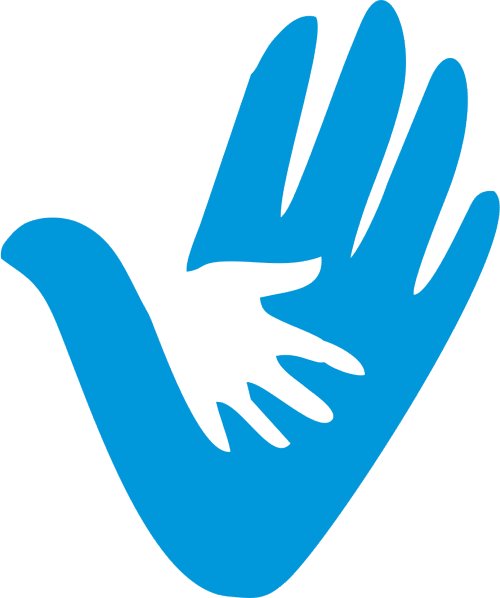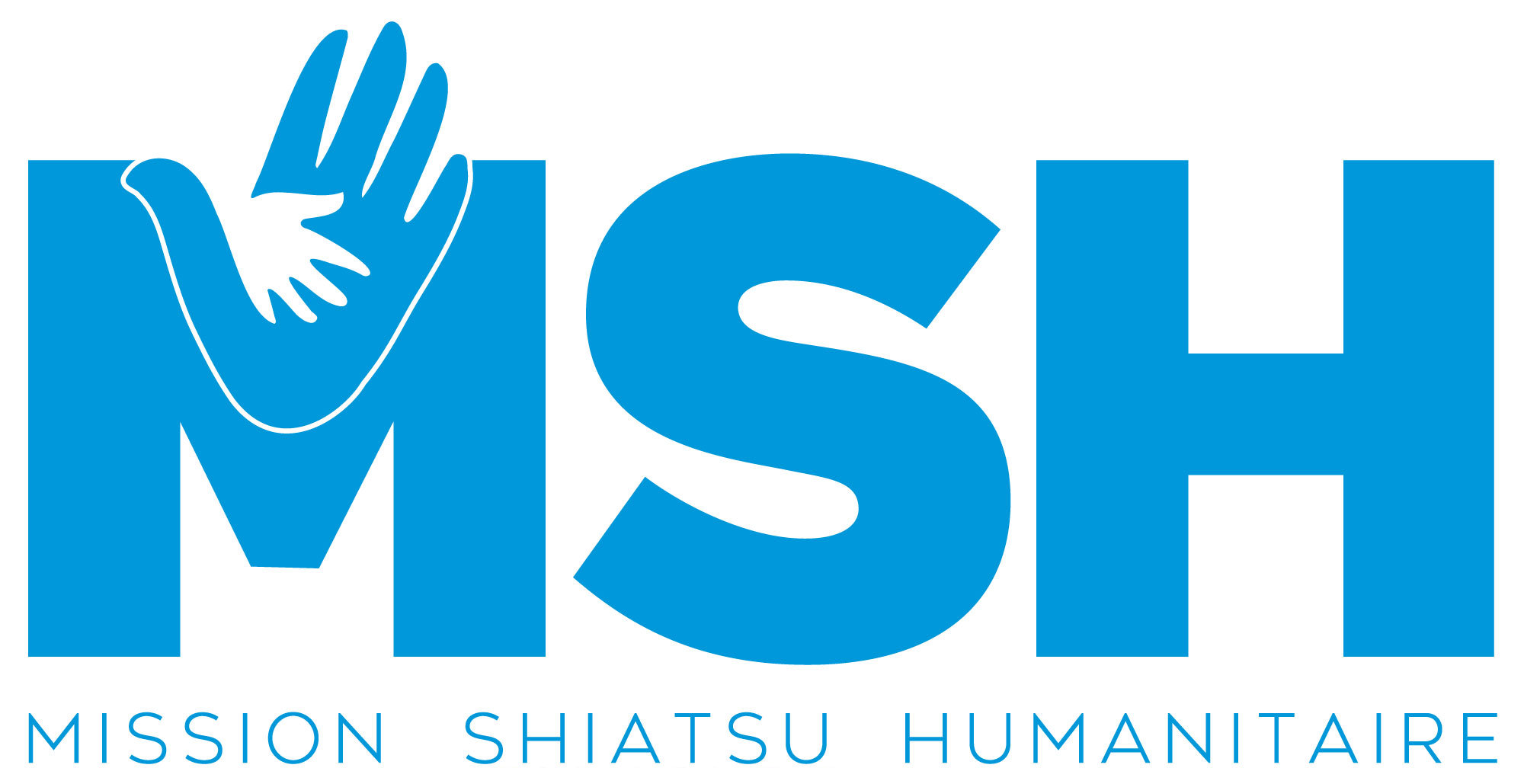Pacific: from medicine to Shiatsu
with Dr Karine Favresse
COUNTRY
Pacific
LANGUAGE
english
Organisation
HEAD OF MISSION
Dr Karine Favresse
contact
Interview avec Karine Favresse
By Marie Cruysans
Translation: Ivan Bel
This is an unusual interview, as I had the chance to interview Karine Favresse while she was travelling in the most remote islands of South-East Asia, off the coast of New Caledonia, on board her sailing catamaran Skybird. A few days’ stopover on land to refuel the crew gave us the opportunity to reflect on the great themes that weave her existence: her passion for travel, the beauty of the world and of nature, authentic encounters and caring for others through her practices as a doctor and shiatsushi.
Karine Favresse is what you might call a resourceful woman. She has always been passionate about yoga, phytotherapy, nutrition and aikido. She first studied general medicine and then homeopathy, which she practiced for nearly 25 years. After her studies, she was attracted to Shiatsu because it links western and eastern medicine. She trained with Master Ohashi in September 2000 and graduated from the Ohashi Institute in New York. Master Ohashi then encouraged her to teach her technique in Belgium, which led her to found the École de Louvranges. She taught Shiatsu there and was its director for more than fifteen years, before retiring and setting sail for new horizons.
Marie Cruysmans: Thank you for this interview Karine, from the seas at the end of the world. I wanted to start with a simple question. After this career combining Western medicine with the art of shiatsu, how did you come to take to the sea?
Karine Favresse: My husband and I had reached a point in our lives where we decided to live differently, to try the Adventure experience, to seek more connection with nature, beauty and the vastness of the world. A life where we could just let ourselves live and give what we had to give. We embarked on a ten-year sailing project in the Pacific.
MC: When you let yourself be carried by the waters as you do, what ultimately guides you?
KF: …you go where the wind takes you. We love the beauty of nature, we feed off the beauty that surrounds us, that’s what we look for, and the depth of the seas too, because we are divers. And then there are also the people who welcome us in these remote places. We go to meet them, we try to learn from them. We love to understand how island civilisations live independently and interact with the world and the nature around them. They have a lot to teach us…
MC: These encounters nourish you enormously, what do you bring to the people you meet?
KF: When I approach a new village or a new island, it is natural that people ask what my job is. Sometimes they have already heard about me from their neighbours. Is it true that you are a doctor? Welcome Doctor Karine!
When I see that someone is in pain, I can’t help but want to help them. I see the suffering, I offer or ask for my help, it depends on the circumstances. It’s very easy, with the local people, the houses are empty, you immediately get to the point: you don’t have to move the furniture, the place is there, the person lies down and then I can treat them.
These men and women who live far from our civilisation know each other well. They are completely connected to their essence because they are not distracted from the essential, and so I too am very quickly connected to that. I treat them and then share some advice with them, so that they are self-sufficient. As a homeopathic doctor, I avoid over-medication, I suggest instead to treat them with local plants of which I have acquired some knowledge. I have always tried to make people responsible for their health, I try to empower them to be responsible. My knowledge and practice of Shiatsu also allows me to give them exercises that are appropriate for each person. Why would I hand out medicine? Very quickly they would run out. I prefer to educate them, to find local ways that I have discovered to help them, to show them some points, to talk about the causes of their problems. I touch them, they touch me. It’s heart to heart, directly, without protocol.
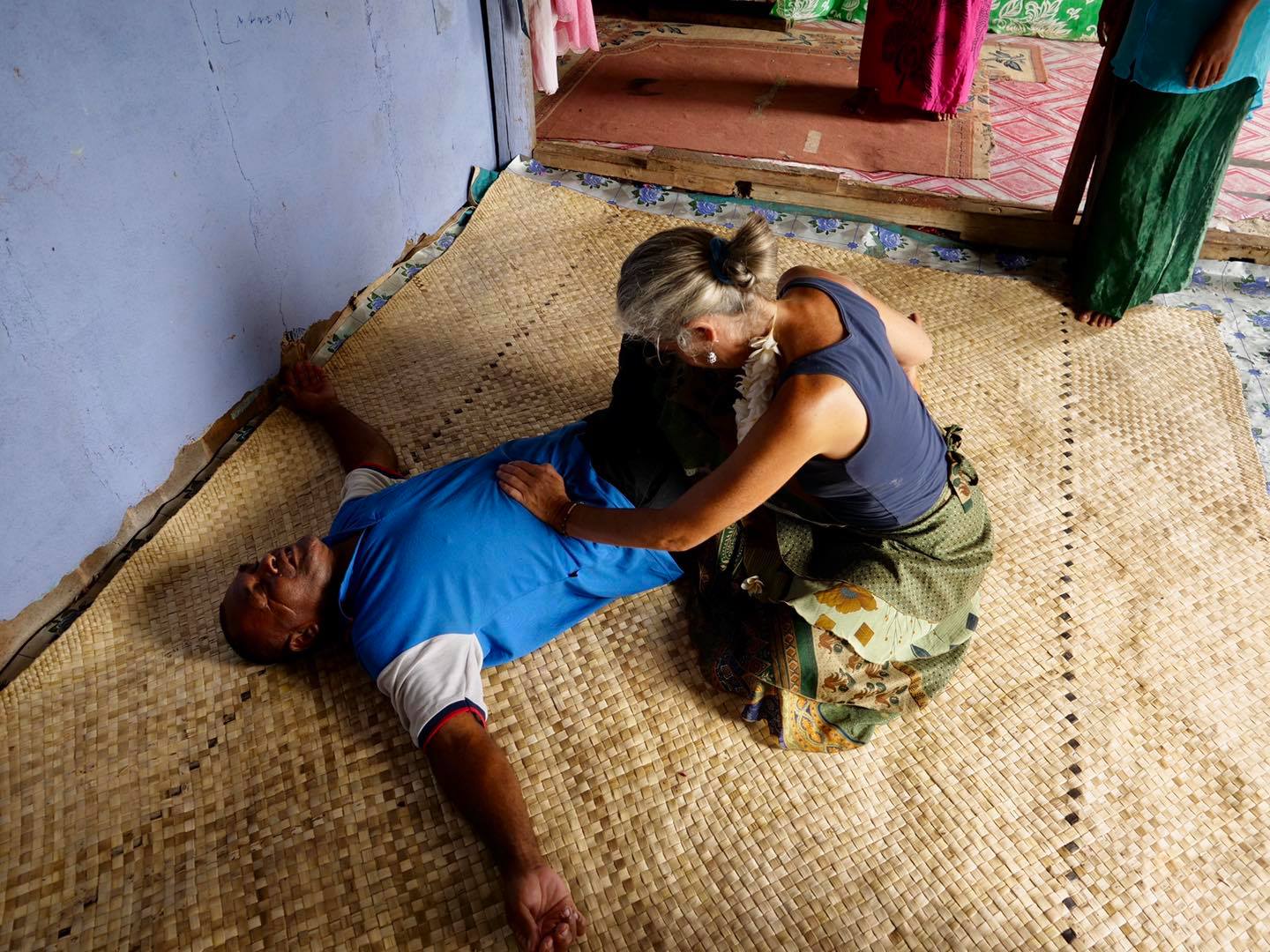
Photo credit (C) Dr Karine Favresse 2022
MC: Is it easy to make contact when you come from such different backgrounds, don’t share the same culture and don’t speak the same language? How do you create this heart-to-heart connection?
KF: We go to meet remote populations who live on islands where nature has remained intact. When we go to these places, we leave with dry, imperishable food, and the villagers provide us with fruit and vegetables in exchange for care, for example. These people are very open and welcoming. All this is done naturally, each according to his needs and without having to use words.
Once I was picked up: ‘My father is in a lot of pain, can you come? This man had a very severe form of gout and needed medication. As they were suspicious of western medicine, I started gently, with Shiatsu and homeopathy. I came back every day for his treatments, until he said to me: “You have shown me that I can trust you, now I will take “the magic of your country”.
MC: If I understand correctly, the relationship is established gradually…
KF: Exactly! They always prefer to have recourse to their traditional medicine first, but accept, when the link is created, to have recourse to other approaches, to what I can give them through my Shiatsu treatments, my advice or my homeopathic remedies. I remember a lady who had a very bad case of diarrhoea. I had taken the time to remind her of certain rules concerning food hygiene, to give her advice on diet. When I returned to visit her a month after my first visit, she was completely recovered. She told me that her pain had passed because she had asked someone to pray for her. She had preferred to use her own means.
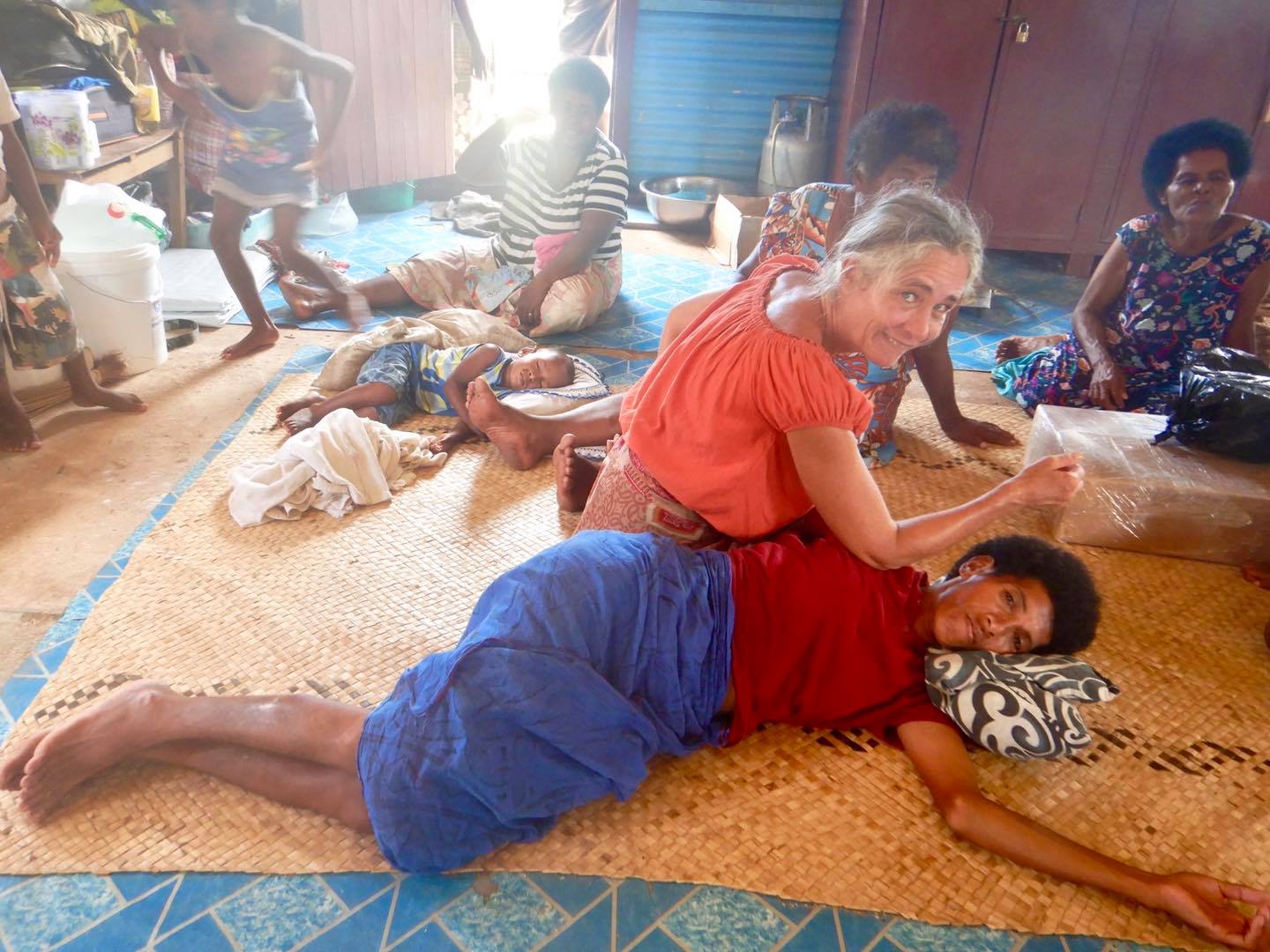
Photo credit (C) Dr Karine Favresse 2022
MC: Have you been able to incorporate elements of their traditional wisdom into your own practice?
KF: I am very interested in their traditional herbal medicine. These people have an extraordinary knowledge of local plants and the natural active principles that allow them to prevent, relieve or cure a disease. But the problem is that this immense wisdom is only transmitted orally.
MC: This knowledge that is not written down will one day be lost…
KF: That’s why I try to collect, record and transcribe everything I learn there…
I am writing a book called “Living and Healing, Inspired by the Five Elements”. I’m writing a book called “Living and Healing, Inspired by the Five Elements”, in which I’m putting my understanding of the five elements, how they interact with each other and within us to keep us healthy. I also put in all the knowledge I have accumulated to cultivate Qi with better diet, remedies, life changes, meditation, physical exercises and life tips.
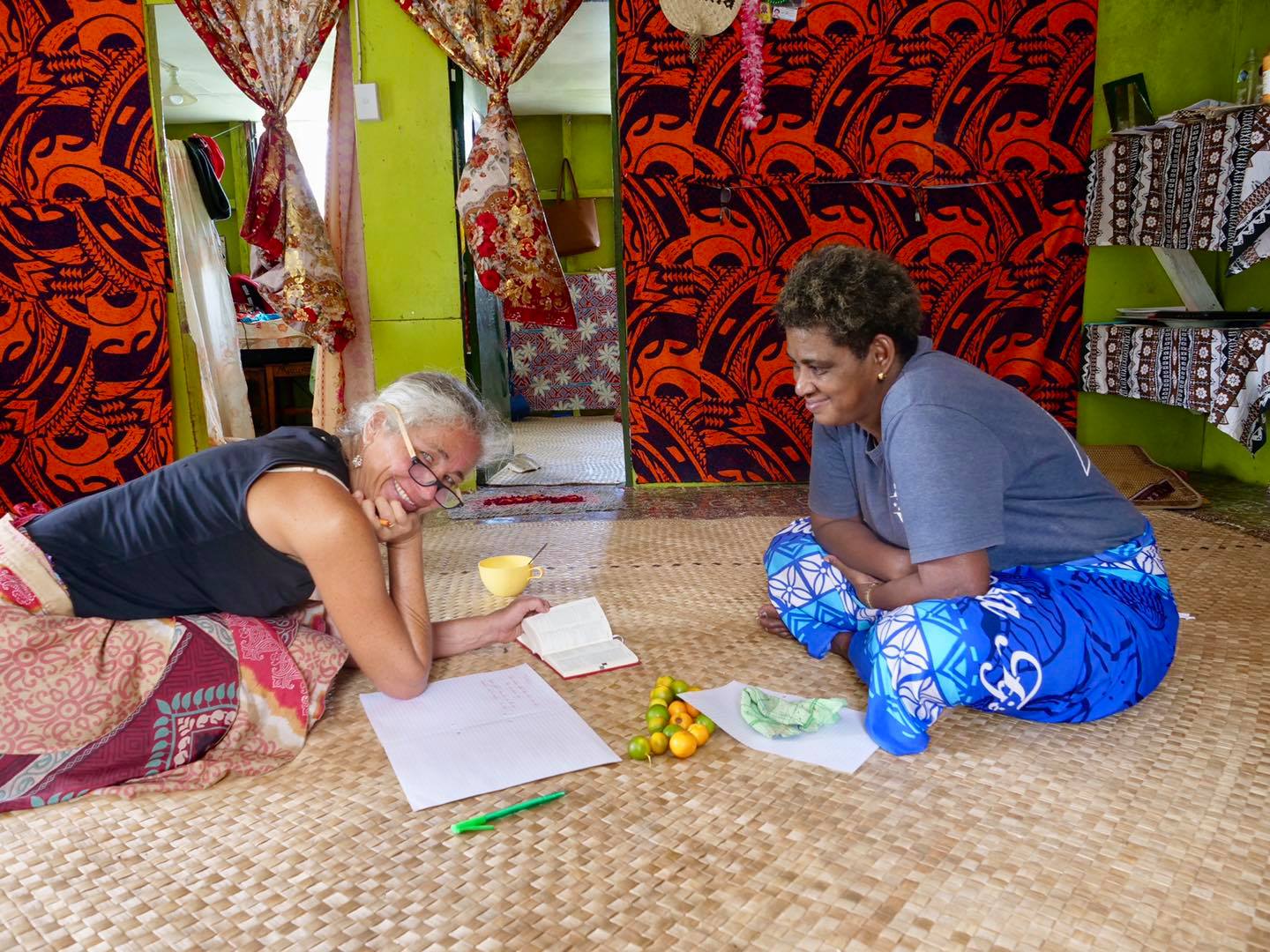
Photo credit (C) Dr Karine Favresse 2022
MC: This ties in with what you told me in the run-up to this interview, how important it was for you to provide sustainable help…
KF: That’s what drives this project and grounds my work. There is no room on these remote islands for modern medicine, either medicated or high-tech, so I adapt to the people I meet and the context in which I work. These people I meet are very connected to the elements: they often sleep on the ground, they are always between the sky, the earth and the water, connected to nature, to themselves and to each other, quite interdependent, alone they cannot survive.
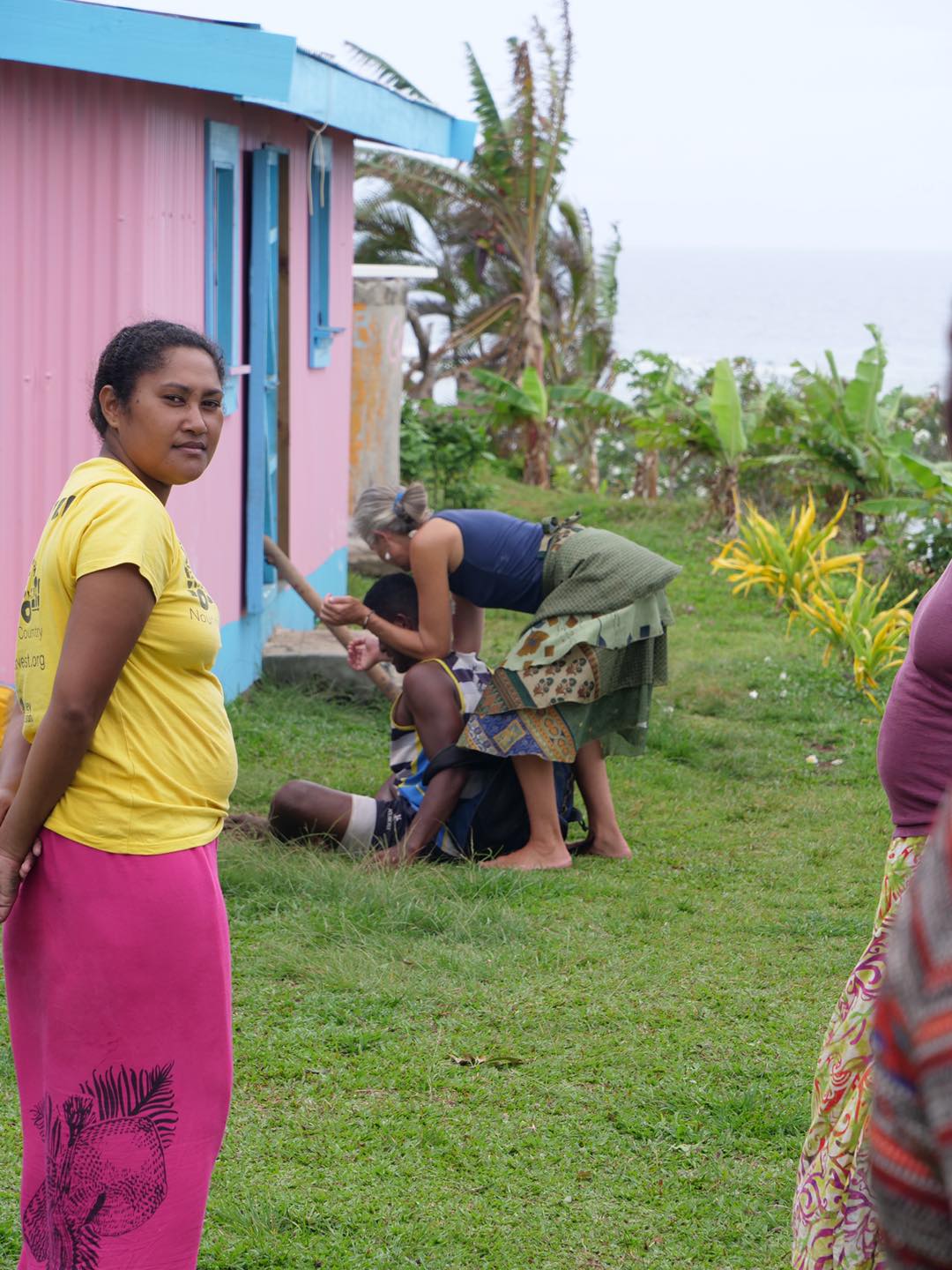
Photo credit (C) Dr Karine Favresse 2022
MC: You used a neologism earlier before the interview that is very well received: “anthroposhiatsu”. Does this mean that if all human beings have two arms, two legs and a head, the practice of Shiatsu would show that they would all be different?
KF: Yes, any holistic practice shows the universe of every human being. My idea of anthroposhiatsu, which I want to keep as my own, is that by doing shiatsu I am doing anthropology. That is, I meet human beings but also their visions of health which is cultural.
MC: Just to give us an idea, what are the pathologies you encounter most frequently?
KF: The most common pathology in Fiji is diabetes and complications: infections, loss of vision. I can give nutritional advice to these people and show them some points but Shiatsu will never be enough for them. Then there is the joint pain in the knees and back pain from intense physical activity, farming, fishing. Or sometimes even rugby, because in Fiji the men play rugby every night in the villages.
Shiatsu is great for them and I sometimes give group classes in the common room.
I have also helped people in shock after a cyclone.
I sometimes combine homeopathy with my treatments, when people are very ill.
A fairly frequent pathology is skin abscesses. To cure them, you need other means than Shiatsu, but our tool can give leads for prevention.
MC: Thank you Karine Favresse for sharing your experience with us. Thank you for taking Shiatsu across the seas and making it travel to the ends of the earth, to benefit those who need it.
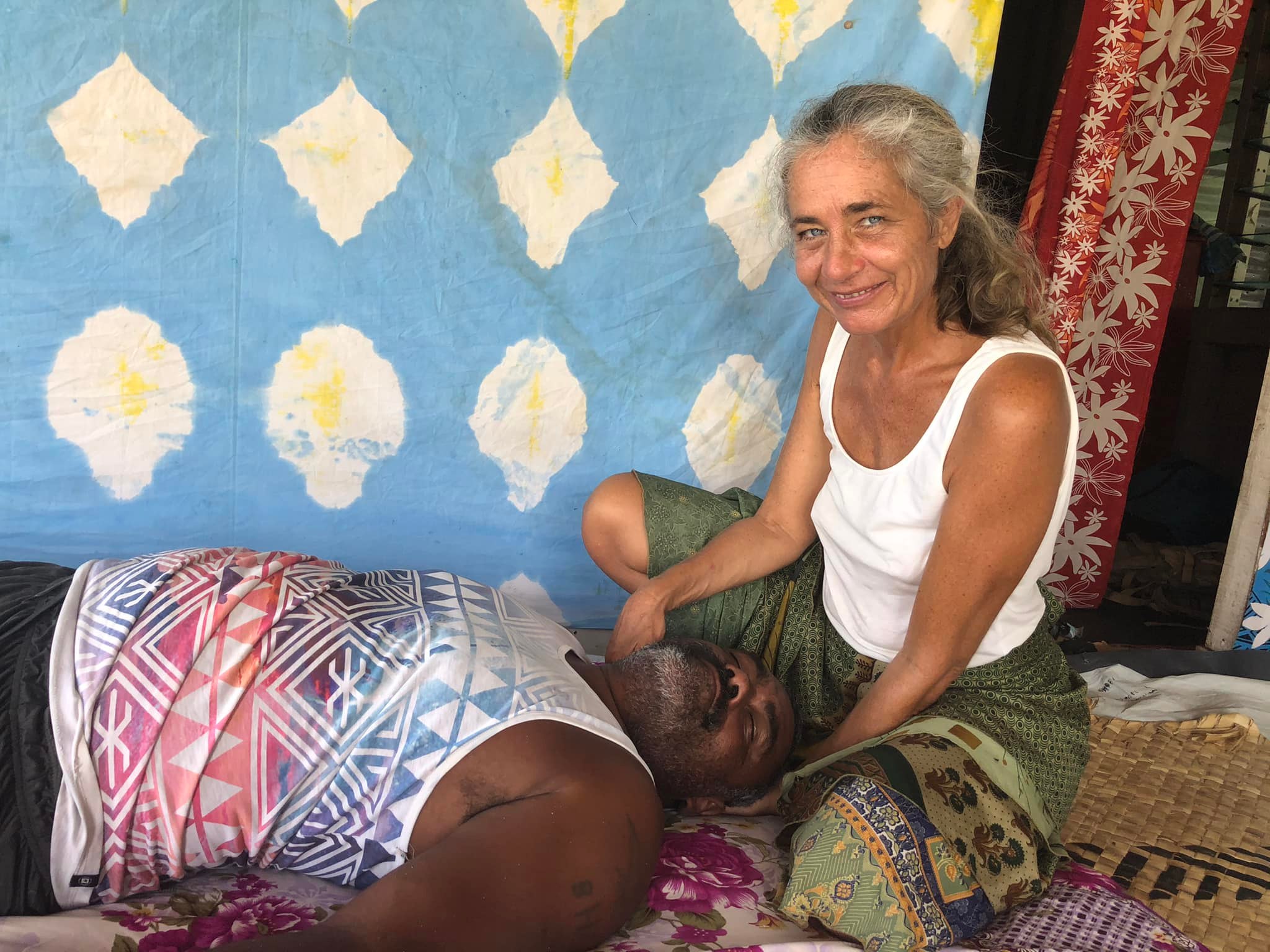
Photo credit (C) Dr Karine Favresse 2022
